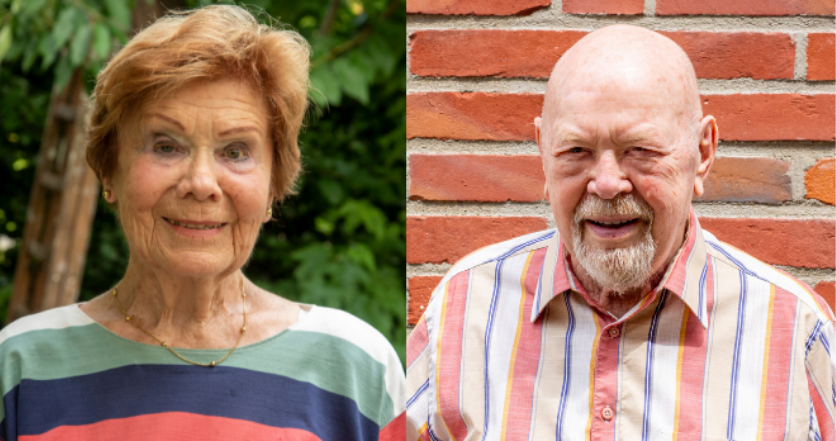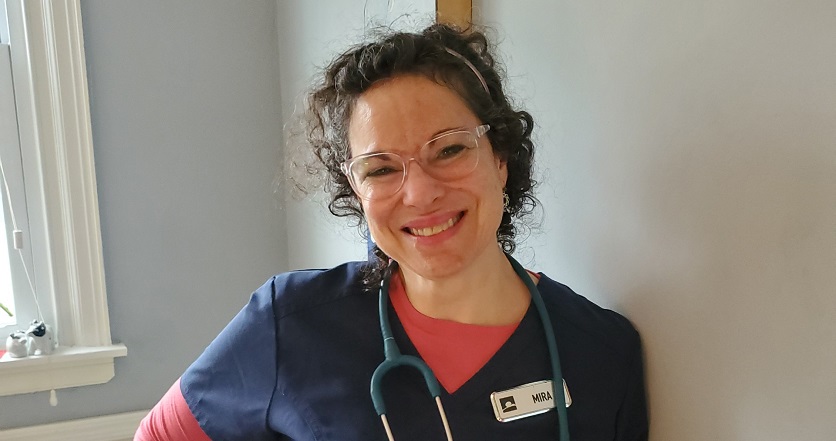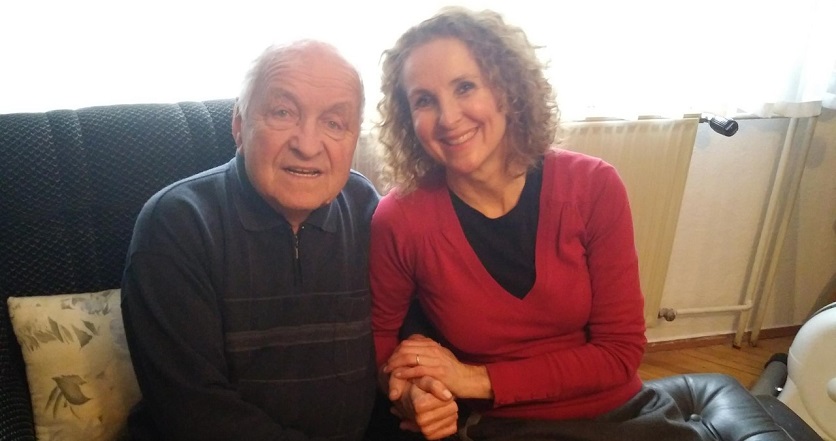A Mother’s Invincible Hope: Parenting through Illness
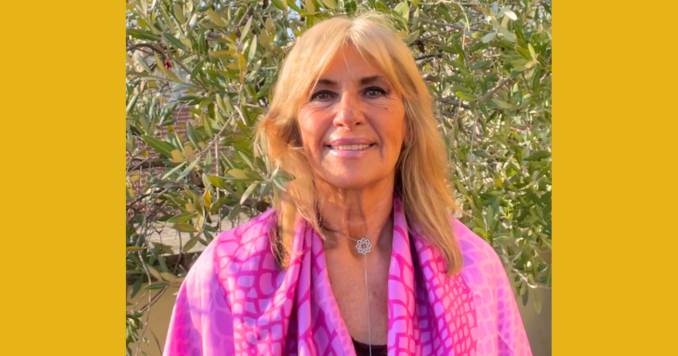
When meningitis threatened to take her daughter’s life, Viviana Ranzani turned to her Buddhist practice, chanting to cultivate hope in the face of a grave prognosis. In doing so, she was surprised by the strength she found.
“Look ahead—
Don’t look back.
For before you lies a life
of hope,
of victory,
of shining glory.”
—Daisaku Ikeda
Having come from a difficult childhood, when I was told that by chanting Nam-myoho-renge-kyo I could transform any karma, I felt the reignition of a sense of unlimited hope inside. That same year, 1992, I began practicing Nichiren Buddhism and was encouraged to chant for both myself and others.
My Daughter’s Illness
A Painful Journey Begins
Shortly after I started practicing, my life began to change very quickly. I got married and had two wonderful children, a son and a daughter, Veronica Yoko Plebani, whose story is at the heart of this experience. In Japanese, Yoko means sunny, cheerful and positive, qualities that my daughter has in abundance, as you’ll come to understand.
I drew on President Daisaku Ikeda’s encouragement and Nichiren’s writings and did as they suggest—refused to succumb to pessimism and prayed with all my might to summon forth absolute hope.
Over the years, I have had many experiences that affirmed my belief in this practice. All of these helped me in 2011, when I faced the most difficult and painful experience. On April 26, Veronica Yoko, then fifteen, returned from a trip with her father and developed a very high fever that wouldn’t go down. At the hospital, they ran various tests and after some preliminary speculations, the final diagnosis was devastating, bacterial meningitis, with a very low chance of survival. Thus began a painful journey.
Refusing to Succumb to Pessimism
The doctors told me that the first 48 hours were critical. After overcoming the initial terror, I drew on President Daisaku Ikeda’s encouragement and Nichiren’s writings and did as they suggest—refused to succumb to pessimism and prayed with all my might to summon forth absolute hope. Despite the situation, I felt grateful that I could stay by Veronica Yoko’s side day and night in intensive care. She was completely immobilized, yet conscious.
I chanted with both desperation and determination. I was able to achieve a state of astonishing clarity and inner stability that kept me from falling apart.
Finding Strength
Looking back, I am amazed at the great strength I was able to find. Surviving bacterial meningitis at a young age is a stroke of incredible good fortune. Nevertheless, Yoko was not left unscathed: the illness had serious and long-term aftereffects. The immune response, in trying to protect her heart from the bacteria, caused sepsis, which essentially burns surrounding body tissue from the inside out. This is why 60 percent of Yoko’s body suffered from burns and she was left severely scarred. Doctors had predicted that if she survived, her arms and legs would have to be amputated. In the end, her fingers and toes were amputated, but she was able to keep her thumbs and big toes—allowing her to do almost everything.
Going Home at Last
For five long months, my daughter remained in intensive care, undergoing multiple surgeries. There is a piece of encouragement from President Ikeda that helped to keep me going during this experience:
“Why doesn’t constant trampling defeat the dandelion? The key to its strength is its long and sturdy root, which extends deep into the earth . . . The same principle applies to people. The true victors in life are those who, enduring repeated challenges and setbacks, have sent the roots of their being to such a depth that nothing can shake them”
Finally, on September 5, 2011, we were able to leave the hospital utterly exhausted but happy—and go home.
I am eternally grateful to all my wonderful fellow Soka Gakkai members who supported us, by checking in on us. They also chanted Nam-myoho-renge-kyo and even invited other members who we didn’t know to chant for us. This filled my heart with gratitude and joy.
Veronica Yoko Blossoms
Giving It Her All
From that day on, Yoko decided to live 100 percent with courage and give her all both at school and in sports. My children have always been active in sports, as have we parents. Yoko’s main interests were dance and snowboarding. After being discharged from the hospital, she focused on snowboarding and joined a club for young people with disabilities. Encouraged by professionals on the sports scene, she began participating in national and European competitions. She completed school and, in 2014, qualified as a snowboarder for the Paralympic Winter Games in Sochi, Russia.
Not stopping there, Yoko challenged herself to take up kayaking on the Oglio River near our home and managed to qualify for the 2016 Summer Olympics in Rio de Janeiro, Brazil, in the kayaking category. The whole family accompanied her to Rio. While there, I met local Soka Gakkai members and was warmly welcomed to the culture center in Ipanema. They already knew that my daughter was participating in the Paralympics and supported her by chanting for her success.
Obstacles Threaten Paralympic Dreams
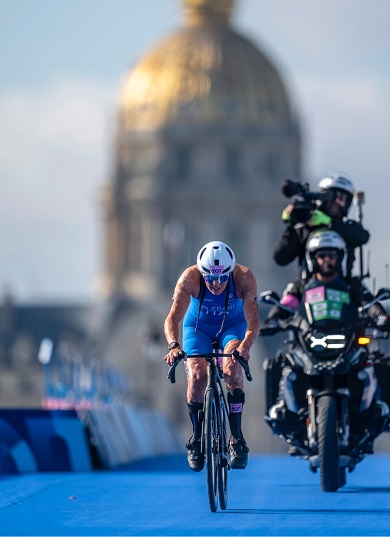
She also had to overcome incredible difficulties to participate in the triathlon at the 2020 Paralympic Games in Tokyo, Japan. Shortly after the COVID-19 pandemic broke out, a foot issue threatened to stop her from running and training for the triathlon. I chanted a lot to be able to support her and not give in to feelings of defeat. The turning point came when she received advanced prosthetic feet, enabling her to go to Tokyo, where she placed third, winning a bronze medal. In 2024, she competed as a triathlete in the Paris Paralympics, this time winning a silver medal.
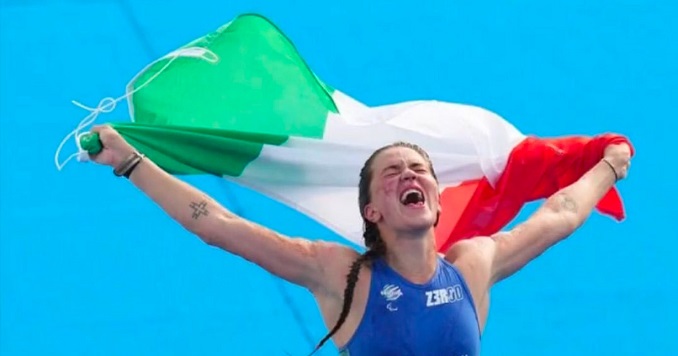
Yoko Tells Her Story
Alongside her demanding daily training, Yoko also studied and graduated in political science and wrote a novel.
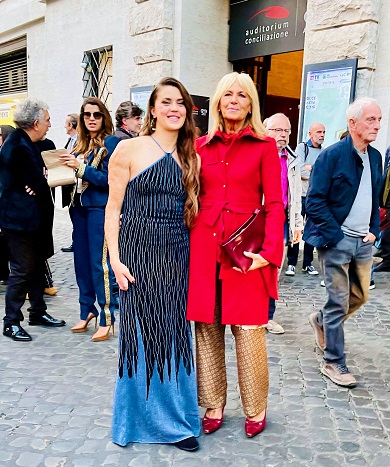
Not only was her story featured in a documentary film, but she was also awarded the title of Knight of the Order of Merit of the Italian Republic for her achievements and received another award from the University of Bologna—in the very hall where President Ikeda was conferred an honorary doctorate in 1994. In October 2022, I was invited to the premiere of the documentary about Yoko at a film festival in Rome. We attended together, and my heart was full of gratitude.
My Advice on Parenting Sick Children
The Present Moment
As a parent facing the illness of my child, I can only say that chanting to keep a high life state so that I didn’t give into feelings of defeat was, above everything else, the key. It’s impossible not to suffer. The most important thing is to show children the joy of the present moment and a love for life. It also means demonstrating invincible hope, the spirit of never giving up and the ability to always turn poison into medicine.
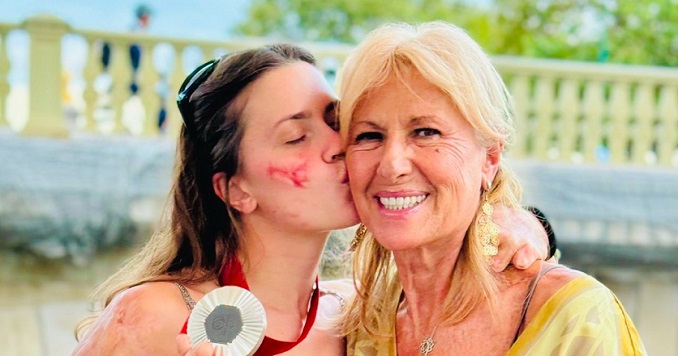
Adapted from issue 748, March 3, 2022, Il Nuovo Rinascimento, Soka Gakkai Italy, with additional information from the January/February 2025 issue of Forum, Soka Gakkai in Germany.





